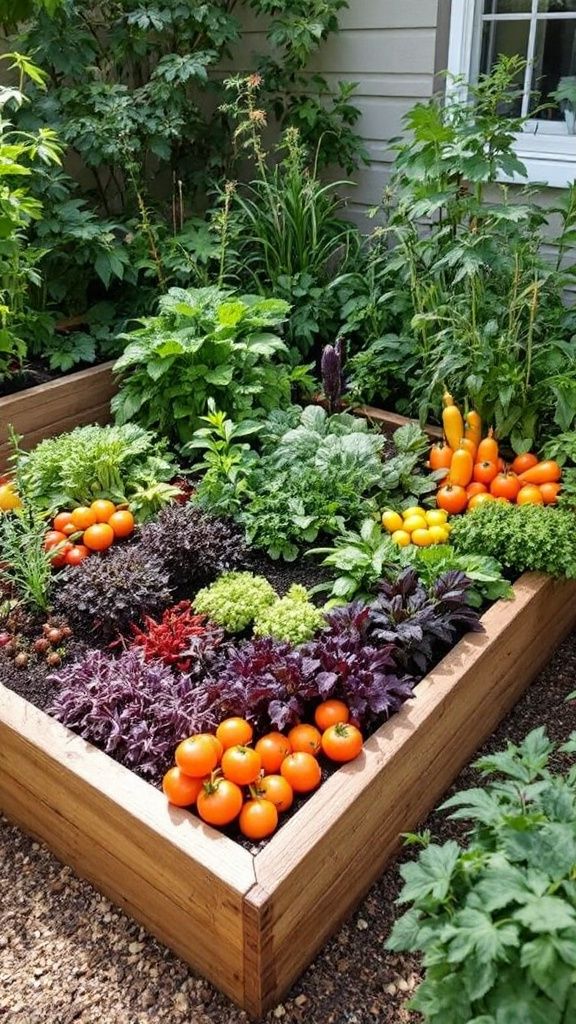Starting a backyard garden is one of the most rewarding hobbies you can take up. It connects you to nature, provides you with delicious, fresh produce, and offers a sense of accomplishment. However, for first-timers, the process can seem daunting. To ensure your first season is a success, here are some essential tips to guide you from bare ground to a backyard food freedom bountiful harvest.
1. Start Small and Strategically
Don’t let the beautiful, sprawling gardens you see on social media intimidate you. A common mistake for beginners is to take on a project that is too large, which can lead to burnout and frustration.
- Size Matters: Begin with a small, manageable space. A 4×4-foot raised bed or a few large containers on a patio is an excellent starting point. It’s much easier to maintain and care for a small plot, and you’ll still be surprised by how much food you can harvest.
- Location is Key: Most vegetables require at least 6-8 hours of direct sunlight per day. Spend a day observing your yard to find the sunniest spot. You should also choose a location that is close to a water source to make watering easy.
2. Prioritize Your Soil
Your plants’ health is directly tied to the health of your soil. You don’t need to be a soil scientist, but you do need to give your plants a good foundation to grow in.
- Raised Beds: For beginners, a raised bed is an ideal solution. It allows you to bypass the existing soil in your yard, which may be full of weeds or rocks. You can fill a raised bed with a high-quality soil mix, often a blend of topsoil, compost, and a draining agent like peat moss.
- In-Ground Gardens: If you’re planting directly in the ground, prepare the area by removing weeds and grass. Then, add a generous layer of organic matter, like compost, and work it into the top few inches of soil. This will improve the soil’s structure and nutrient content, providing a better home for your plants’ roots.
3. Choose Easy-to-Grow Vegetables
For your first season, set yourself up for success by choosing plants that are known for being resilient and productive. These forgiving vegetables will give you confidence and a satisfying harvest.
- Leafy Greens: Lettuce and spinach are perfect for beginners. They grow quickly, tolerate some shade, and can often be harvested multiple times.
- Root Vegetables: Radishes and carrots are easy to grow from seed. Radishes, in particular, can be ready to eat in as little as three to four weeks.
- Prolific Plants: Zucchini and green beans are excellent choices. A single zucchini plant can produce an abundance of fruit, and green beans are generally low-maintenance and high-yield.
- Herbs: Don’t forget herbs! Basil, mint, and parsley are very easy to grow in containers or in the ground and will add fresh flavor to your meals.
4. Master the Art of Watering
Watering is one of the most critical and often misunderstood aspects of gardening for beginners.
- Water Deeply, Less Often: Instead of a light sprinkle every day, water deeply a few times a week. This encourages the plant roots to grow deeper, making them more resilient to dry spells.
- Water at the Base: Aim your watering can or hose at the base of the plant, directly on the soil. Wet leaves can encourage fungal diseases.
- Morning is Best: The best time to water is in the morning. This allows the water to soak into the soil before the heat of the day causes it to evaporate, and it gives the leaves time to dry before evening.
5. Stay Proactive with Maintenance
A little bit of consistent effort goes a long way. Spending a few minutes in your garden each day will help you catch issues before they become major problems.
- Weed Regularly: Weeds compete with your plants for nutrients and water. Pulling a few weeds every day is far easier than battling an overgrown garden once a week.
- Mulch: A layer of mulch (such as straw, wood chips, or shredded leaves) around your plants will help suppress weeds, retain soil moisture, and regulate soil temperature.
- Embrace Imperfection: Your garden won’t be perfect, and that’s okay. You’ll deal with pests, diseases, and maybe even a crop that doesn’t work out. Every failure is a learning opportunity that will make you a better gardener next season.
Starting a backyard garden is a journey of learning and discovery. By starting small, preparing your soil, choosing the right plants, and maintaining a consistent routine, you will be well on your way to enjoying the simple, delicious pleasures of a homegrown harvest.











